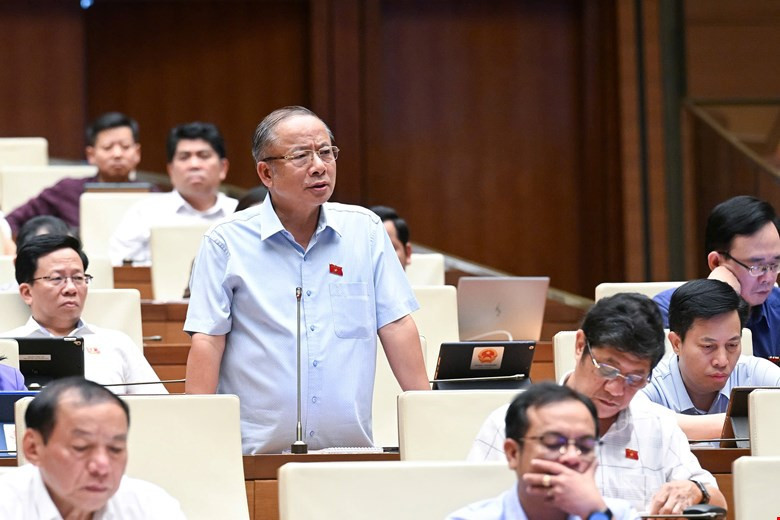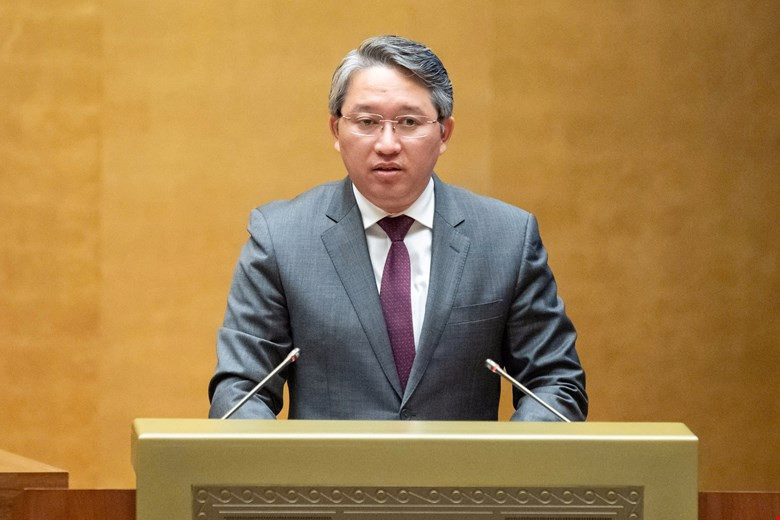Vietnam is considering easing conditions for acquiring citizenship, particularly for overseas Vietnamese and skilled individuals, as part of efforts to enhance national development.
Despite maintaining the long-standing principle of "one nationality," the Ministry of Justice emphasized the need for more open policies to draw talented individuals back to the country.

On the afternoon of May 29, the National Assembly held a plenary discussion on proposed amendments to the Law on Vietnamese Nationality.
Some lawmakers argued against requiring foreign applicants for Vietnamese citizenship to adopt Vietnamese names.
Delegate Nguyen Van Than (Thai Binh) noted that choosing whether to keep or change one’s name should be a personal right. He argued that using a foreign name does not threaten national security or violate the law.
Than emphasized that certain provisions in the draft law could create psychological barriers, especially for young or elderly overseas Vietnamese who wish to regain citizenship. For example, many young people with foreign citizenships currently study or work at prestigious universities abroad and are eager to return to Vietnam for teaching or research. However, if they are required to renounce their original citizenship, it may discourage them - especially if their families still reside overseas.
He proposed that the requirement to renounce one’s previous citizenship should apply only in special cases, such as positions involving national defense or security.
Additionally, Than questioned the rule that individuals working in political or social organizations must forfeit their foreign citizenship. He pointed out that many countries now recognize dual nationality.

“Expanding eligibility for Vietnamese citizenship aligns with the hopes of patriotic overseas Vietnamese. If the one-citizenship policy is too rigid, it may inadvertently deter those who wish to contribute,” he said.
Delegate Nguyen Lam Thanh (Thai Nguyen) also supported expanding dual citizenship rights, especially given Vietnam's sizable overseas population - estimated at around six million. He noted that it is the Party and State’s policy to encourage these individuals to return and contribute to the nation.
“Allowing dual citizenship is not only reasonable but should be encouraged,” Thanh said.
He also suggested that naturalized citizens not be required to take Vietnamese names, but instead be allowed to adopt names that are Vietnamese-influenced, promoting international integration while preserving identity.
As an example, Thanh mentioned the naturalized football player Nguyen Xuan Son, pointing out that names like his obscure the individual’s origins.
“This issue needs careful consideration to balance integration, international norms, and effective administrative management,” he added.
The one-citizenship principle remains foundational

Responding to delegates, Minister of Justice Nguyen Hai Ninh reaffirmed that nationality is a deeply political and legal matter.
“The principle of one nationality has been consistent throughout the history of Vietnam’s nationality laws. However, easing conditions is aimed at attracting people of Vietnamese descent and highly qualified individuals to contribute to national development,” he stated.
Ninh added that in some sectors where special conditions are necessary, the government will issue detailed regulations to ensure flexibility, reflect a modern legislative approach, and uphold national sovereignty.
He also noted that issues related to nationality inherently involve national security. Drawing a comparison, Ninh said that applying for a visa in any country does not guarantee approval, nor are applicants always given clear explanations for denials.
The Vinh